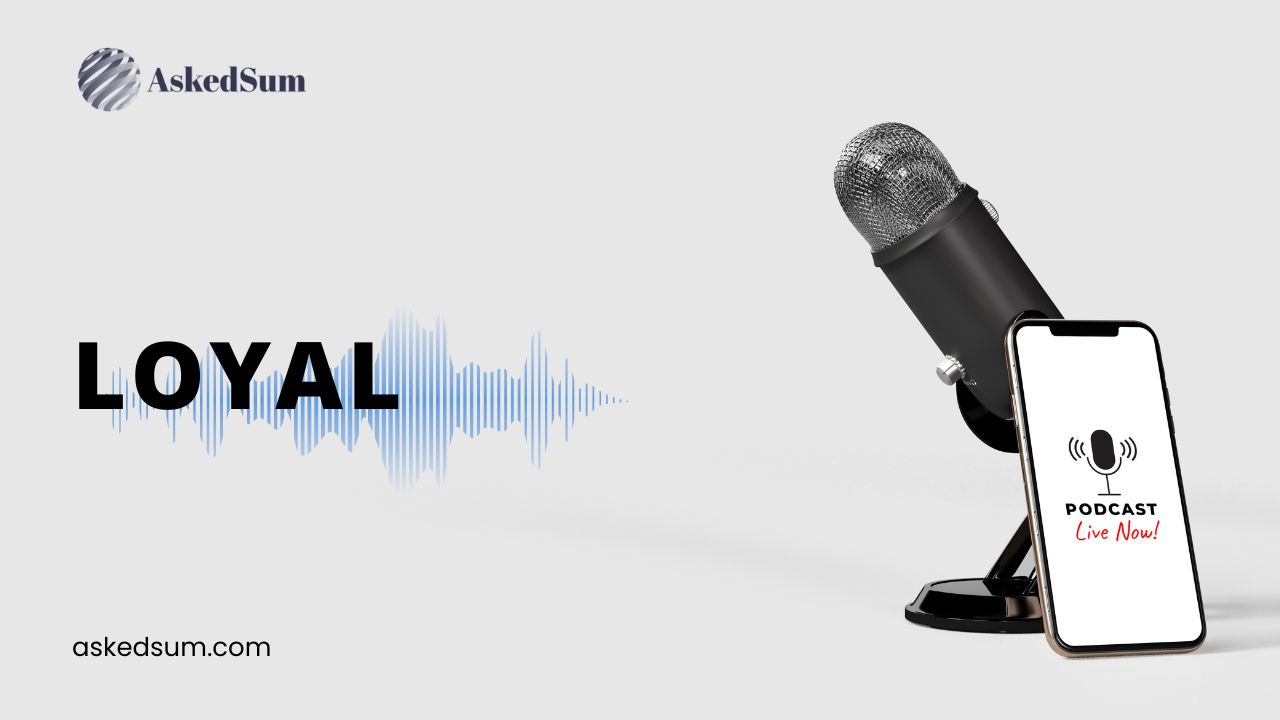Table of Contents
In a world where fleeting connections and transient engagements often overshadow deeper commitments, the value of loyalty stands out as a beacon of integrity and trustworthiness. Loyalty, a deeply ingrained personal value, influences not just our interpersonal relationships but also our professional interactions. It’s a testament to one’s character, reflecting a blend of faithfulness, commitment, honesty, and reliability. This blog post explores the multifaceted importance of loyalty, offering guidance to those preparing for interviews and seeking to incorporate these principles into their lives.
Deep Dive into Why Do You Want to be a Delta Sigma Theta?
Through detailed interview questions, real-life examples, and an exploration of the benefits and challenges of being loyal, we aim to provide a comprehensive understanding of how loyalty shapes our interactions, builds strong bonds, and fosters an environment of mutual respect and unwavering support. Whether in personal connections or professional networks, loyalty enriches our experiences and contributes to a life of ethical behavior and moral principles.
Importance of the Title
The title “Why Do You Want to Be a Loyal Person?” underscores the significance of loyalty as a cornerstone of ethical behavior and strong personal and professional relationships. Loyalty embodies trustworthiness, integrity, faithfulness, and a commitment to ethical standards. It plays a crucial role in building trust, maintaining respect in relationships, and ensuring consistency in behavior. Loyalty is not merely a trait but a choice that influences our actions and decisions, impacting how we support others and stay true to our values.
It fosters emotional support, mutual respect, and strong bonds, which are essential for healthy, lasting relationships. In the professional realm, loyalty contributes to a positive work environment, enhances teamwork, and can lead to loyalty benefits like increased trust and cooperation among colleagues.
Interview Questions and Answers
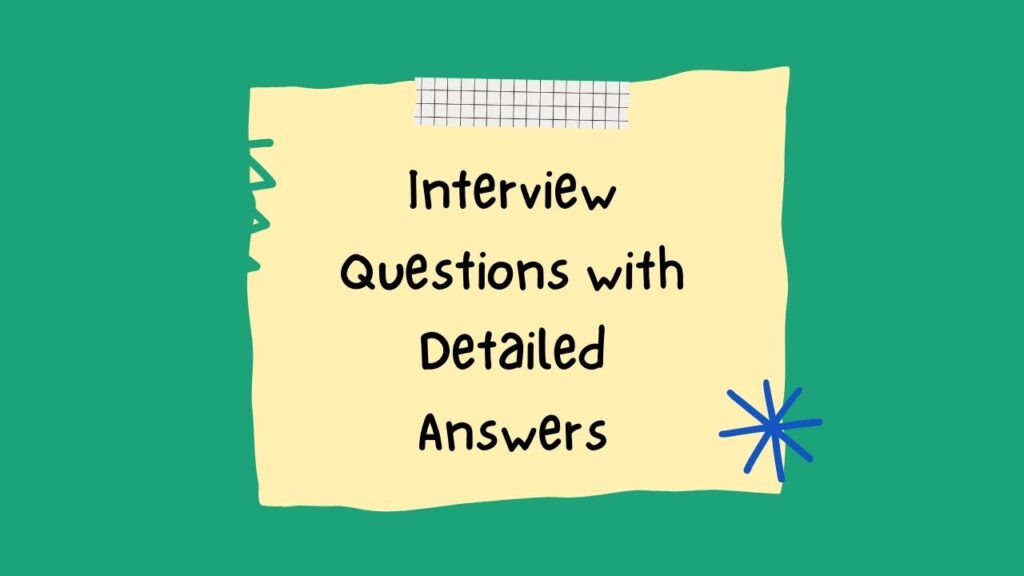
- Why is loyalty important to you?
- Loyalty represents a fundamental aspect of my character, reflecting my dedication to maintaining strong, trust-based relationships and upholding my personal and professional commitments. Real-life example: In my previous role, loyalty to the team and the company’s vision motivated me to go above and beyond during a critical project phase, ensuring its success and strengthening our collective bond.
- Can you provide an example of a time when your loyalty was tested?
- Yes, once a competitor approached me with an offer during a challenging period at my current job. Despite the tempting offer, my loyalty to my team and belief in our project’s potential led me to stay. This decision paid off when we overcame the challenges and achieved significant milestones, reaffirming my commitment to loyalty.
- How do you balance loyalty with honesty, especially if you disagree with a superior?
- Balancing loyalty with honesty involves respectful communication and integrity. For instance, when I disagreed with a superior’s strategy, I prepared a well-researched alternative solution to present. This approach ensured I remained loyal to my team’s goals while being honest about my concerns, fostering a constructive dialogue.
- Describe a situation where loyalty to your team required a personal sacrifice.
- When a critical deadline loomed, and the team was short-staffed, I volunteered to work overtime and during weekends. This decision meant sacrificing personal time, but it was crucial for the project’s success and demonstrated my loyalty to the team’s objectives and our collective success.
- How do you maintain loyalty in a competitive environment?
- Maintaining loyalty in a competitive environment requires a focus on shared goals and fostering a culture of support and respect. By highlighting team achievements and encouraging a collaborative rather than competitive atmosphere, I’ve contributed to building a loyal, cohesive team.
- What does loyalty mean in a professional context?
- In a professional context, loyalty means supporting your organization’s goals, being committed to its success, and acting with integrity. It involves balancing individual aspirations with the well-being of the team and company. A personal example is when I advocated for a colleague’s promotion, recognizing their hard work and dedication, which benefited our team’s morale and success.
- How do you demonstrate loyalty to a company during times of change or uncertainty?
- Demonstrating loyalty during times of change involves adaptability, open communication, and a commitment to the company’s vision. For example, during a significant organizational restructuring, I took the initiative to lead a team through the transition, ensuring we remained focused and productive, thereby supporting the company’s evolving needs.
- Can loyalty coexist with the need for personal growth and career advancement?
- Absolutely. Personal growth and career advancement are integral to professional loyalty. By seeking opportunities for advancement within the company, I’ve been able to grow personally while contributing to the organization’s success. A balance is key, as demonstrated when I pursued additional training to take on more responsibilities, benefiting both my career and the company.
- How do you build and maintain loyalty in a team setting?
- Building and maintaining loyalty in a team involves creating a culture of trust, respect, and open communication. Encouraging team members to share ideas and recognizing their contributions fosters a loyal, supportive environment. An example is implementing regular team-building activities and feedback sessions, which have strengthened our collective commitment and trust.
- In what ways do you believe loyalty can impact career progression?
- Loyalty positively impacts career progression by building a reputation for reliability, commitment, and integrity. For instance, my loyalty to past projects and teams has been recognized through promotions and increased responsibilities, demonstrating that steadfast commitment and teamwork lead to personal and professional growth.
Thoughtful Interview Questions

- How does loyalty influence your decision-making process?
- Can you describe a time when being loyal helped you overcome a challenge?
- How do you prioritize loyalty when faced with ethical dilemmas?
- In what ways has loyalty shaped your professional relationships?
- How do you reconcile loyalty with the need for constructive criticism?
- What role does loyalty play in leadership?
- How do you ensure loyalty does not lead to complacency?
- How has your perception of loyalty evolved over your career?
- Can loyalty be detrimental? If so, in what situations?
- How does loyalty contribute to team dynamics?
- What measures do you take to foster loyalty within a diverse team?
- How do you balance loyalty to a colleague versus loyalty to company policies?
- Can loyalty to a project or goal influence its outcome? How?
- How do you demonstrate loyalty in remote or virtual teams?
- How does loyalty within a team contribute to its resilience in tough times?
Deep Interview Questions
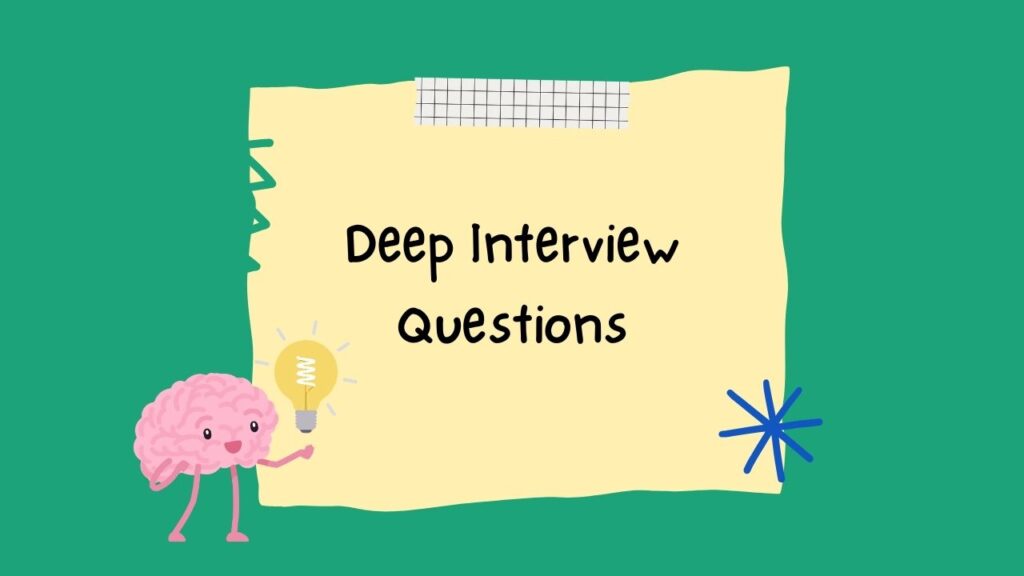
- How do you differentiate between loyalty and dependency in professional relationships?
- What ethical considerations come into play when loyalty seems to conflict with honesty?
- How do you manage loyalty in situations where company directions change dramatically?
- Can too much loyalty to a team or project blind you to its flaws? How do you prevent this?
- How has a situation tested your loyalty, and what did you learn from it?
- In what ways can loyalty to a professional mentor influence your career trajectory?
- How do you balance personal loyalty with professional loyalty when they are at odds?
- How do loyalty and trust interact in your professional relationships?
- What strategies do you employ to rebuild loyalty after it’s been broken?
- How do you navigate loyalty in competitive, cutthroat environments?
- In what ways can loyalty to a cause or principle shape your professional identity?
- How does loyalty to oneself play a role in professional development?
- How can leaders cultivate loyalty without fostering a culture of favoritism?
- What role does transparency play in maintaining loyalty among team members?
- How do you approach loyalty in a global team with diverse cultural perspectives on loyalty?
Funny Interview Questions Based on Title
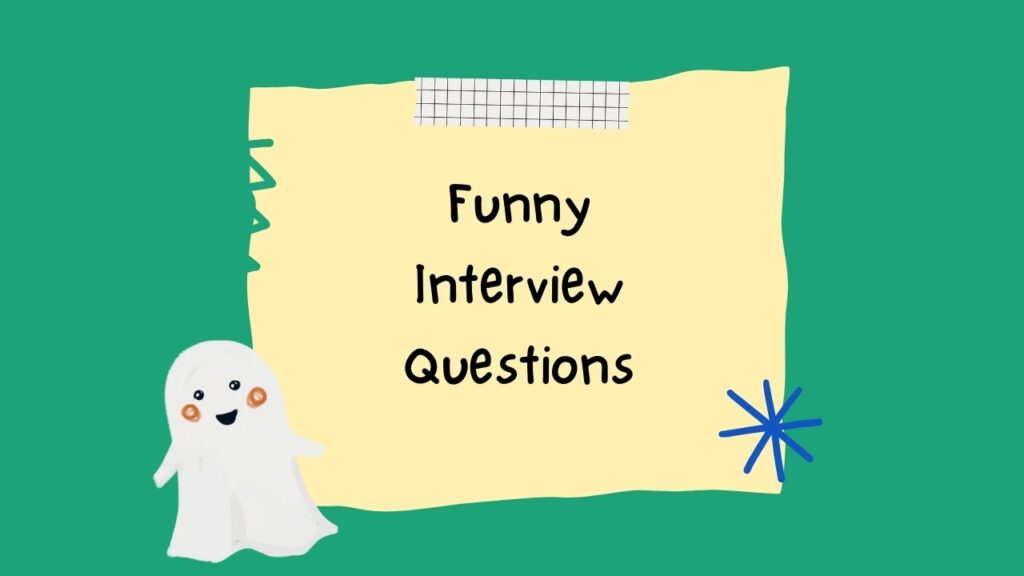
- If loyalty were a superhero power, how would you use it in the workplace?
- Have you ever been so loyal to a coffee brand that you refused others at work? Why?
- If you could have a loyalty anthem for your team, what song would it be and why?
- Can loyalty to a lunch spot be considered a team-building activity?
- Have you ever faced a loyalty test between office pets? How did you handle it?
- If loyalty were a sport, what position would you play in your team?
- How would you convince a pirate crew to be loyal to you as their captain?
- Have you ever had to swear loyalty to a brand of office supplies? What was your oath?
- If there were loyalty awards at work, what category would you want to win?
- Can being loyal to your alarm clock count as a professional skill?
- How would you use loyalty to save the world in a movie plot?
- What’s the most ridiculous thing you’ve done out of loyalty to a team tradition?
- If loyalty had a flavor, what would it taste like in the office kitchen?
- How do you balance loyalty between coffee and tea drinkers in the office?
- Would you rather fight 100 duck-sized horses or show loyalty to one horse-sized duck at work?
Meaningful Interview Questions Based on Title
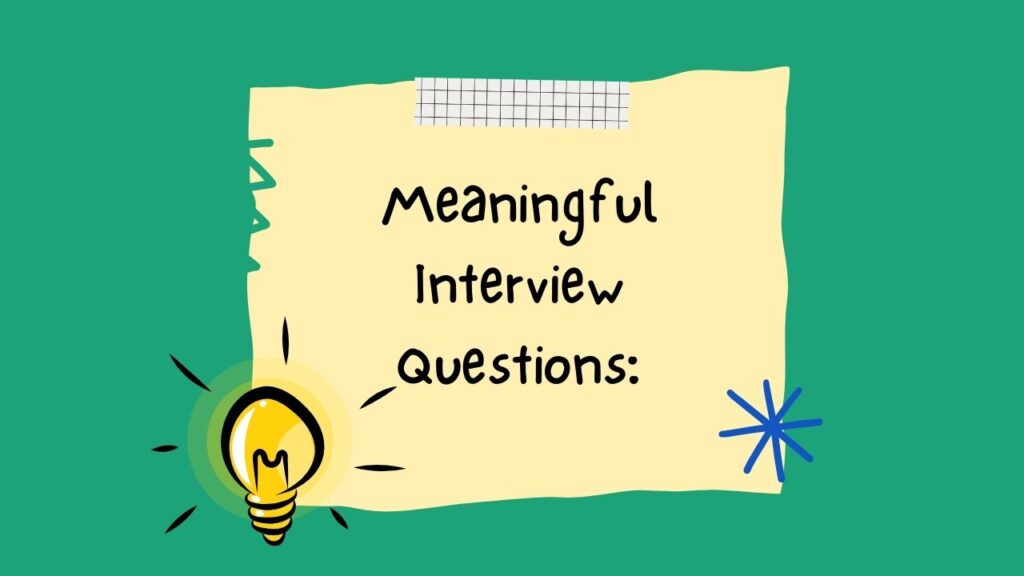
- How do you view the role of loyalty in fostering workplace diversity and inclusion?
- In what ways does loyalty contribute to personal and professional integrity?
- How does demonstrating loyalty in challenging times shape a company’s culture?
- How can leaders effectively balance the need for loyalty with encouraging innovation and change?
- What are the long-term impacts of loyalty on career development and progression?
- How does loyalty influence your approach to mentoring and coaching others?
- In what ways can loyalty to a professional community drive industry innovation?
- How does loyalty within a team impact the overall success of a project?
- What role does loyalty play in conflict resolution and building trust?
- How do you ensure that your loyalty is both recognized and reciprocated in professional settings?
- How can companies cultivate a culture of loyalty in an era of frequent job changes?
- How does loyalty to ethical principles influence decision-making in complex situations?
- What strategies do you use to maintain loyalty during organizational transformations?
- How does loyalty contribute to creating a supportive and positive work environment?
- In what ways does demonstrating loyalty outside of work impact your professional relationships?
How This Profession Can Help Others
A profession grounded in loyalty can significantly contribute to the well-being of individuals and communities. By embodying trustworthiness, reliability, and commitment, professionals can create stable and supportive environments where individuals feel valued and respected. Loyalty in one’s profession encourages ethical behavior, fosters strong relationships, and builds a foundation for mutual support and growth. This, in turn, leads to increased productivity, innovation, and satisfaction within the workplace. Moreover, professionals who prioritize loyalty can serve as role models, inspiring others to act with integrity and dedication. Through their actions and decisions, loyal professionals help cultivate a culture of respect, understanding, and collaboration, benefiting not just their immediate circles but the broader community as well.
Strengths and Weaknesses Based on the Title
Strengths:
- Trustworthiness: Demonstrated by consistently acting with integrity and honesty.
- Example: Always delivering on promises, thereby building trust with colleagues and clients.
- Commitment: Showing dedication to projects and people.
- Example: Staying late to help a team member meet a deadline.
- Reliability: Being someone others can depend on.
- Example: Always completing tasks on time, ensuring team operations run smoothly.
- Adaptability: Balancing loyalty with the ability to adapt to change.
- Example: Supporting a company through a rebranding process with a positive attitude.
- Empathy: Understanding and valuing the perspectives of others.
- Example: Listening to and addressing team concerns, fostering a supportive environment.
- Leadership: Guiding others with a loyal and ethical example.
- Example: Leading a project team to success while ensuring everyone’s contributions are recognized.
- Resilience: Staying loyal to goals and values, even in tough times.
- Example: Motivating a team to persevere through project setbacks.
- Strategic Thinking: Planning for long-term loyalty and success.
- Example: Developing a loyalty program that benefits both the company and its customers.
- Communication: Maintaining open and honest communication channels.
- Example: Regularly updating stakeholders on project progress, building trust and reliability.
- Problem-Solving: Using loyalty to drive solutions that benefit all parties.
- Example: Navigating conflicts of interest with diplomacy and fairness.
Weaknesses:
- Overcommitment: Risk of spreading oneself too thin due to loyalty to multiple projects or people.
- Bias: Potential for loyalty to cloud judgment, leading to biased decisions.
- Resistance to Change: Loyalty to traditional methods may hinder adaptation to innovative solutions.
- Dependency: Excessive reliance on certain relationships or environments due to loyalty.
- Avoidance of Conflict: Loyalty leading to reluctance in addressing necessary confrontations or issues.
- Fear of Risk: Loyalty to safety and comfort zones, limiting growth opportunities.
- Overprotectiveness: Being overly defensive of people or projects out of loyalty.
- Complacency: Loyalty leading to satisfaction with the status quo, hindering progress.
- Misplaced Loyalties: Investing loyalty in unworthy causes or individuals, leading to negative outcomes.
- Difficulty in Detachment: Struggling to leave roles, projects, or relationships where loyalty no longer serves a positive purpose.
Challenges Based on Title
- Navigating situations where personal and professional loyalties conflict.
- Maintaining loyalty in a fast-paced environment where changes are frequent.
- Balancing loyalty with the need for honesty and constructive feedback.
- Ensuring loyalty does not lead to complacency or resistance to innovation.
- Cultivating loyalty in diverse teams with varying perspectives and values.
Benefits Based on Title
- Stronger, trust-based relationships with colleagues and clients.
- Enhanced reputation for reliability and integrity.
- Increased job satisfaction and team cohesion.
- Better conflict resolution through mutual respect and understanding.
- Greater resilience and loyalty from others, creating a supportive network.
Conclusion
Loyalty is a multifaceted virtue that plays a crucial role in both personal and professional spheres. It fosters trust, builds strong relationships, and promotes ethical behavior. By understanding and embodying loyalty, individuals can navigate their careers with integrity, contribute positively to their workplaces, and support those around them. The exploration of loyalty through thoughtful interview questions, real-life examples, and an analysis of its strengths and challenges offers valuable insights for anyone looking to deepen their commitment to their values and relationships.

